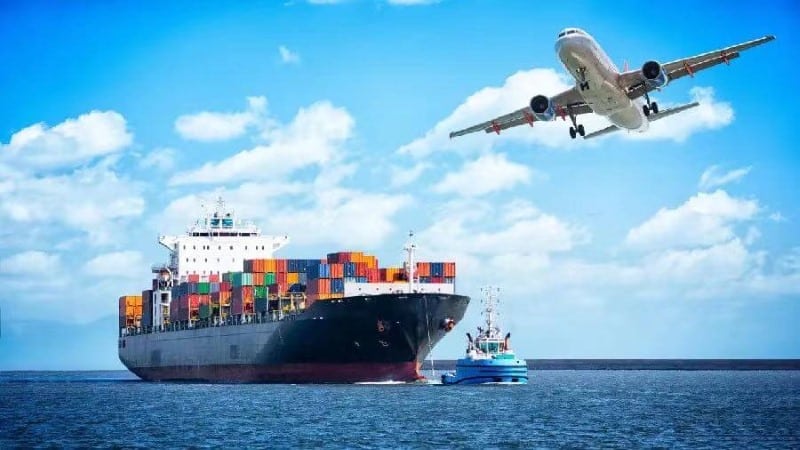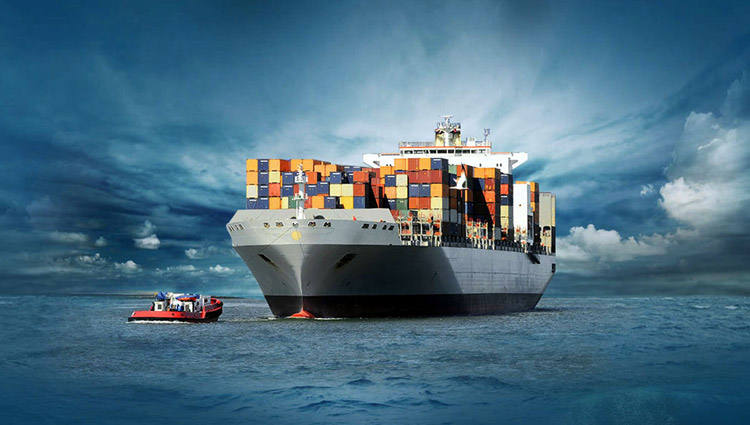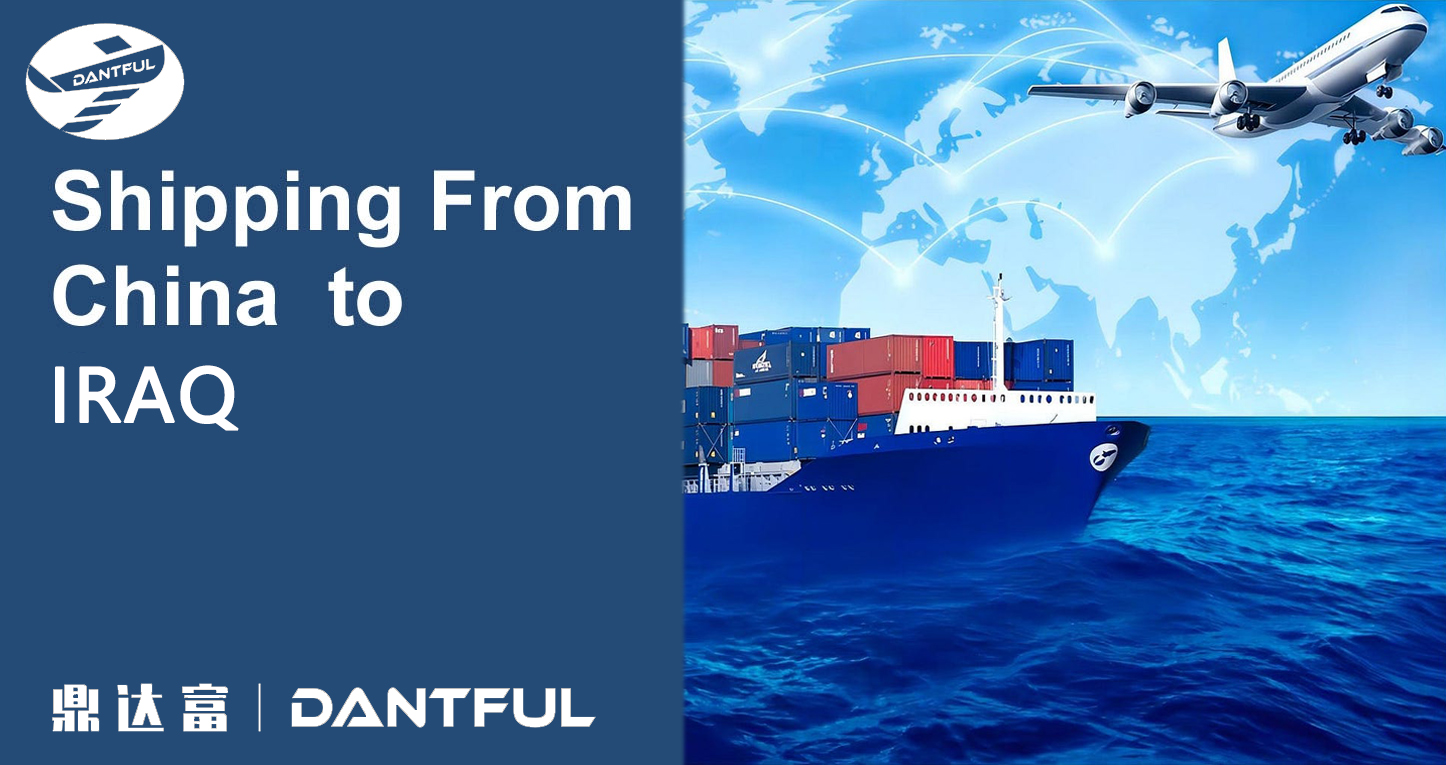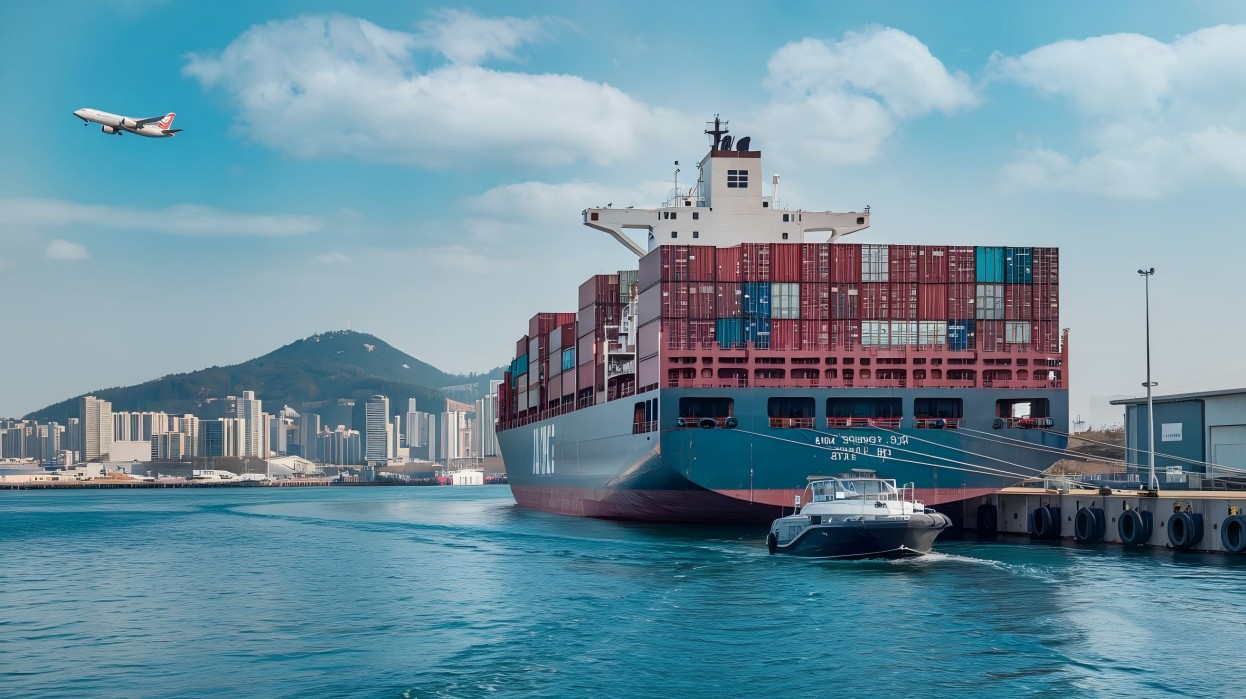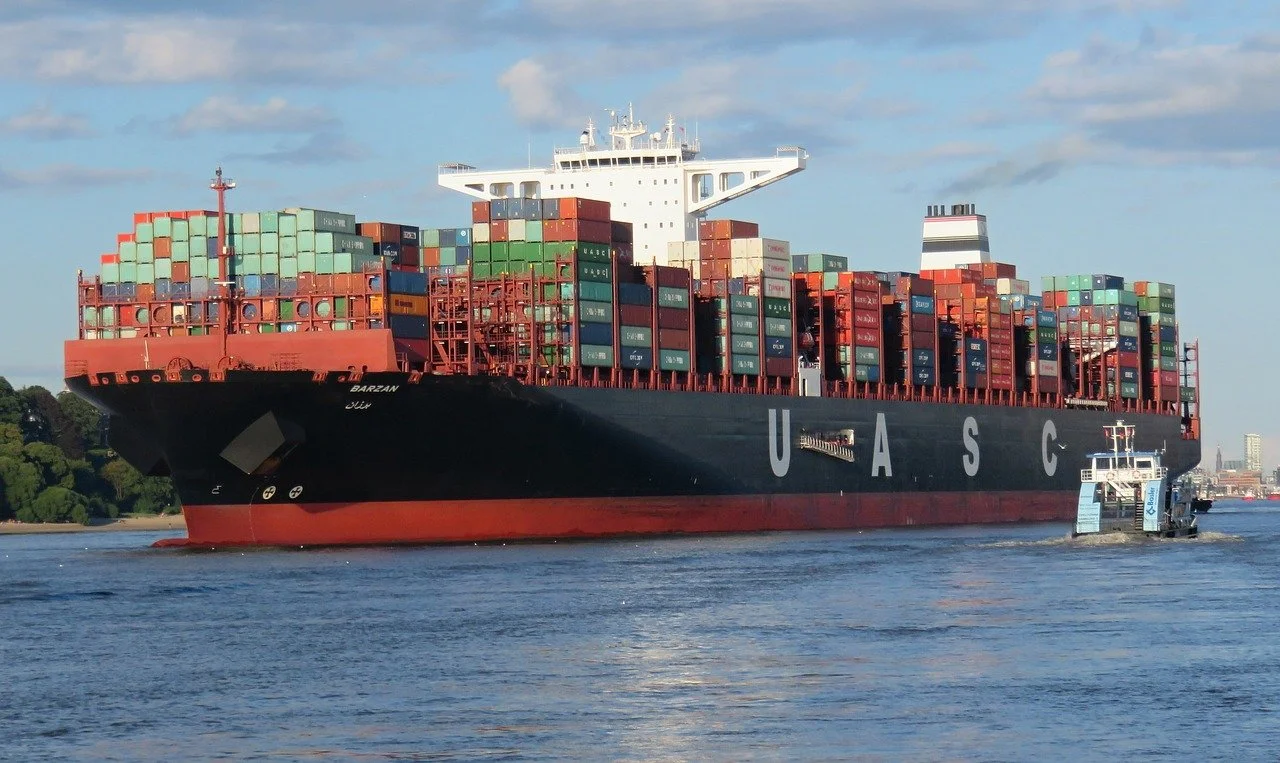In today’s global marketplace, efficiently navigating the complexities of international shipping is crucial for businesses looking to import goods from China to Iran. A reliable freight forwarder plays a pivotal role in this process, acting as an intermediary that simplifies logistics, ensures compliance with trade regulations, and ultimately facilitates timely deliveries. Understanding the vital functions of a freight forwarder, recognizing the key factors to consider when selecting one, and employing effective strategies for evaluation can significantly enhance your shipping experience. This guide will provide valuable insights to help you identify the best freight forwarder to meet your specific logistics needs and ensure a smooth shipping process from China to Iran.
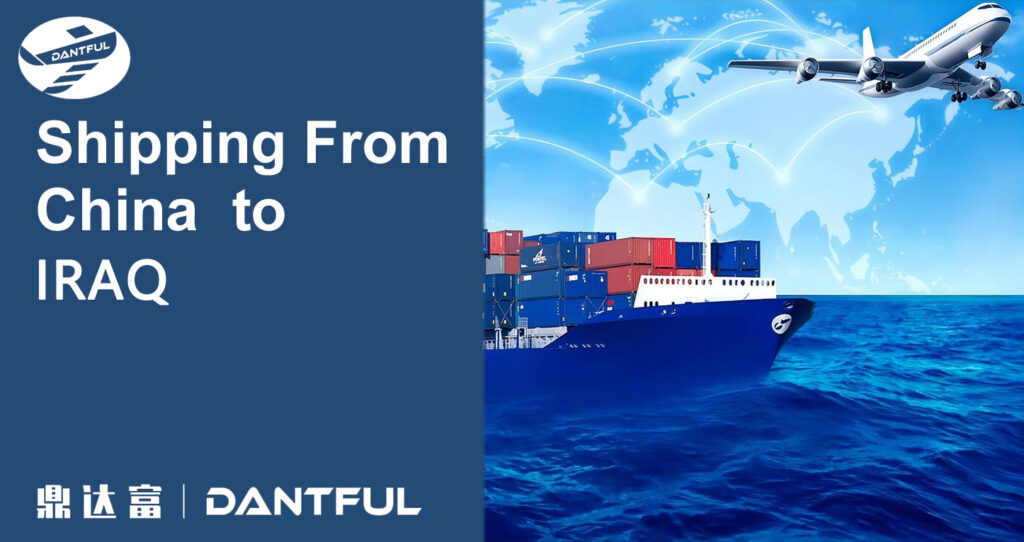
Understanding the Role of a Freight Forwarder
A freight forwarder acts as an intermediary between shippers and transportation services. They facilitate the logistics involved in moving goods from one point to another, ensuring that the shipping process is efficient, cost-effective, and compliant with international trade regulations. Freight forwarders manage a variety of operations, including:
- Booking cargo space with various carriers (ocean, air, or land)
- Arranging for customs clearance, documentation, and compliance
- Providing warehousing and distribution services
- Offering insurance options to protect shipments
In essence, freight forwarders streamline the shipping process, allowing businesses to focus on their core operations while ensuring that their products reach their destinations efficiently and safely.
Why Use a Freight Forwarder for Shipping from China to Iran?
Utilizing a freight forwarder when shipping from China to Iran offers several advantages:
-
Expert Knowledge of Local Regulations: Freight forwarders are well-versed in the customs regulations and import requirements specific to Iran, which helps avoid any potential delays or penalties.
-
Network of Reliable Carriers: With established relationships with various shipping companies, a freight forwarder can secure the best shipping rates and transit times, optimizing the supply chain.
-
Comprehensive Service Offerings: From arranging transportation to providing documentation assistance, freight forwarders deliver a comprehensive suite of services that covers all aspects of logistics.
-
Cost Savings: By leveraging their expertise and network, freight forwarders can often secure better pricing than individual importers could achieve on their own.
-
Risk Management: With an understanding of potential pitfalls, a freight forwarder can implement strategies to minimize risk, ensuring the safe transport of goods.
By employing a freight forwarder, businesses can navigate the complexities of international shipping with confidence and ease.
Factors to Consider When Choosing a Freight Forwarder
When selecting a freight forwarder for shipping goods from China to Iran, several key factors should be assessed to ensure a smooth and efficient logistics process.
Legitimacy and Licensing
One of the first aspects to investigate is the legitimacy of the freight forwarder. Confirming that they possess the necessary licenses and certifications is crucial. A reputable freight forwarder should be registered with recognized organizations such as the International Federation of Freight Forwarders Associations (FIATA) or have a valid license from the appropriate government authorities. This guarantees that they adhere to industry standards and regulatory compliance.
Experience and Expertise in China and Iran Trade
Experience plays a pivotal role in the effectiveness of a freight forwarder. A forwarder with extensive knowledge of the China-Iran trade landscape will be able to navigate potential challenges effectively. This includes understanding the nuances of customs documentation, the specifics of tariffs, and any trade restrictions or agreements between the two countries. A freight forwarder’s track record in handling shipments specific to your industry can also provide critical insights that enhance efficiency.
Range of Services Offered
Freight forwarding encompasses a wide range of services. It is essential to evaluate the services offered by potential freight forwarders to ensure they align with your shipping needs. Look for a forwarder that provides:
- Air freight and sea freight services
- Customs clearance assistance
- Warehouse services for storing goods
- Insurance services for protecting shipments
- Door-to-door shipping services for added convenience
Having a one-stop-shop for logistics simplifies coordination and reduces the chances of miscommunication.
Competitive Pricing and Transparent Fees
Cost is always an important consideration when selecting a freight forwarder. Look for forwarders that provide competitive pricing and transparent fee structures. Request quotes from multiple forwarders and ensure that all potential costs are clearly outlined. This includes shipping fees, handling charges, customs clearance fees, and any additional costs. A clear understanding of the costs involved helps avoid unexpected expenses later in the shipping process.
Reliable Communication and Customer Service
Effective communication is vital to successful logistics management. A freight forwarder should offer reliable communication channels, keeping you informed throughout the shipping process. This can include:
- Regular updates on the status of your shipment
- Prompt responses to inquiries
- Availability to address concerns
Assessing customer service reviews and testimonials can also provide valuable insights into a forwarder’s reliability and responsiveness.
Tracking and Monitoring Capabilities
In today’s fast-paced shipping environment, having tracking and monitoring capabilities is essential. A reputable freight forwarder should provide access to real-time tracking of shipments, allowing businesses to monitor their cargo’s journey from origin to destination. This transparency enhances accountability and helps address any potential issues promptly.
Insurance and Risk Management
Lastly, consider the insurance options provided by the freight forwarder. Shipping internationally carries inherent risks, and having adequate insurance coverage is crucial to safeguarding your investment. A forwarder should offer various insurance options, along with guidance on selecting the appropriate coverage for your specific needs. This proactive approach to risk management contributes to a more secure shipping experience.
In summary, selecting the right freight forwarder for shipping goods from China to Iran requires careful consideration of multiple factors. By focusing on legitimacy, expertise, range of services, pricing, communication, tracking capabilities, and insurance, businesses can find a freight forwarder that meets their specific logistics needs. Dantful International Logistics stands out as a highly professional, cost-effective, and high-quality choice for global traders, providing a one-stop international logistics service provider. Explore Dantful’s offerings today and navigate your shipping challenges with confidence.
Shipping From China to Middle East Countries:
- Shipping from China to Saudi Arabia
- Shipping from China to UAE
- Shipping from china to KUWAIT
- Shipping From China To EGYPT
- Shipping from China to Bahrain
- Shipping From China To Jordan
- Shipping From China To Israel
- Shipping from China to Qatar
- Shipping From China To IRAQ
- Shipping from China to Iran
Strategies for Finding the Right Freight Forwarder
Finding the ideal freight forwarder to facilitate your shipping needs from China to Iran involves several strategic approaches. These approaches ensure that you partner with a reliable and efficient forwarder who can navigate the complexities of international logistics effectively.
Referrals and Recommendations from Trusted Sources
One of the most effective methods for finding a trustworthy freight forwarder is through referrals from trusted sources. This could include:
- Industry peers who have experience in shipping from China to Iran.
- Suppliers or manufacturers who have utilized freight forwarding services.
- Business associations or chambers of commerce that provide networking opportunities.
Personal recommendations can provide insights into a forwarder’s reliability, customer service, and overall effectiveness, reducing the time spent on research.
Online Research and Comparison of Freight Forwarders
The digital age allows for easy access to information about various freight forwarders. Conducting online research is essential, and it can involve:
- Visiting the websites of different freight forwarders to assess their services, capabilities, and expertise.
- Reading customer reviews and testimonials on third-party sites to gauge client satisfaction.
- Utilizing online forums and social media platforms to gather opinions from other importers.
Making a comparison chart based on your findings can help visualize differences in services, pricing, and specialties, aiding in making an informed choice.
Attending Trade Shows and Networking Events
Participating in trade shows and industry networking events can provide invaluable face-to-face interactions with potential freight forwarders. These events offer opportunities to:
- Meet representatives from various forwarding companies and discuss your specific shipping needs.
- Gain insights into industry trends and best practices.
- Build relationships that may lead to future collaborations.
Networking at these events can also lead to personal referrals and recommendations that enhance your search for a suitable freight forwarder.
Utilizing Freight Forwarder Directories and Databases
Freight forwarder directories and databases are excellent resources for finding potential partners. These platforms typically provide detailed profiles of various forwarders, including their specialties, service offerings, and customer reviews. Some reputable directories include:
- The FreightNet directory
- The World Cargo Alliance (WCA)
- The International Federation of Freight Forwarders Associations (FIATA)
These resources can streamline your search by allowing you to filter forwarders based on specific criteria such as location, services offered, and industry specialization.
Conducting Thorough Background Checks and Due Diligence
Before finalizing your choice, it is essential to conduct thorough background checks on the potential freight forwarders. This process can include:
- Verifying their licensing and certifications to ensure compliance with international shipping regulations.
- Checking their financial stability by reviewing their credit ratings or requesting references from other clients.
- Investigating their claims history to understand their track record in handling goods and managing risks.
Due diligence helps mitigate potential risks associated with unreliable forwarders and ensures that you are partnering with a reputable logistics provider.
Evaluating Potential Freight Forwarders
Once you have narrowed down your options, it is crucial to evaluate potential freight forwarders thoroughly. This evaluation process should encompass several key areas.
Requesting Quotes and Comparing Costs
Start by requesting quotes from shortlisted freight forwarders. A detailed and transparent quote will often include:
- Shipping costs, including fuel surcharges and other fees
- Handling charges
- Customs clearance fees
Comparing these costs allows you to identify which forwarders provide competitive pricing without compromising on service quality. It is also important to clarify what is included in the quotes to avoid unexpected expenses later.
Assessing Their Knowledge of Customs Regulations and Procedures
A critical aspect of successful shipping is the knowledge of customs regulations. Assess the freight forwarder’s understanding of:
- Import/export regulations specific to both China and Iran
- Necessary documentation required for customs clearance
- Tariffs and duties applicable to your goods
A forwarder with extensive knowledge in this area can significantly reduce the risk of delays and additional costs during the customs process.
Evaluating Their Network of Partners and Agents in Iran
A well-established network of partners and agents in Iran is essential for seamless operations. Evaluate potential forwarders based on:
- Their relationships with local customs agents and authorities
- The quality of their partnerships with carriers operating in Iran
- Their logistics capabilities within the country
A robust network can enhance the efficiency of shipping operations and provide better support in case of any issues that may arise.
Reviewing Their Track Record of Successful Shipments
Analyzing a forwarder’s track record helps gauge their reliability and effectiveness. Consider:
- The number of successful shipments they have handled, especially to Iran
- Client testimonials regarding their services
- Case studies or examples of how they overcame challenges in previous shipments
A solid track record can be an indicator of a forwarder’s ability to meet your logistics needs effectively.
Considering Their Sustainability and Environmental Practices
With an increasing focus on sustainability, evaluating a freight forwarder’s environmental practices is becoming more important. Assess their commitment to:
- Sustainable shipping practices, such as carbon offsetting or using energy-efficient transportation
- Compliance with international environmental regulations
- Initiatives aimed at reducing waste and promoting eco-friendly packaging
Choosing a forwarder that prioritizes sustainability aligns your business with responsible practices and can enhance your brand image.
By implementing these strategies and evaluation criteria, businesses can effectively identify and select the right freight forwarder for their export needs, ensuring a successful and efficient shipping process from China to Iran. As you navigate this process, consider partnering with Dantful International Logistics, a highly professional, cost-effective, and high-quality freight forwarding service provider, to streamline your international logistics operations. Explore Dantful’s offerings to gain a competitive edge in your shipping endeavors.
Read More:
- Shipping From China to the United States
- Shipping From China TO CANADA
- Shipping From China To Netherlands
- Shipping From China To UNITED KINGDOM
- Shipping From China To ALGERIA
- Shipping from China to UAE
- Shipping from China to Saudi Arabia
Negotiating and Finalizing the Agreement
Once you have identified a suitable freight forwarder, the next step involves negotiating and finalizing the agreement. This phase is crucial in establishing a solid foundation for your partnership, ensuring that both parties are aligned in expectations and responsibilities.
Clearly Defining the Scope of Services and Responsibilities
To avoid misunderstandings later on, it is essential to clearly define the scope of services the freight forwarder will provide. This includes outlining specific responsibilities such as:
- Transportation modes (air freight, ocean freight, etc.)
- Customs clearance and documentation services
- Warehouse services, if applicable
- Insurance coverage options for the shipment
By explicitly detailing these services, both parties can have a clear understanding of what is included in the agreement, reducing the risk of disputes.
Agreeing on Payment Terms and Methods
Payment terms are a critical component of any service agreement. When negotiating, ensure that you discuss:
- Payment methods (bank transfer, credit card, PayPal, etc.)
- Payment schedule (upon booking, upon delivery, etc.)
- Additional fees that may arise (fuel surcharges, handling fees, etc.)
A transparent discussion about payment will help prevent misunderstandings and ensure that the financial aspects of the partnership are managed effectively.
Discussing Contingency Plans and Emergency Procedures
Unexpected challenges can arise during transportation, making it essential to discuss contingency plans and emergency procedures with your freight forwarder. This could include:
- Protocols for handling delays due to customs issues, transportation disruptions, or other unforeseen circumstances
- Strategies for risk management, such as alternative routing options
- Communication channels to be used in emergencies
Establishing these protocols upfront can enhance the responsiveness and adaptability of your logistics processes, ensuring that both parties are prepared for potential challenges.
Signing a Comprehensive Contract or Service Agreement
Once all details have been discussed and agreed upon, the final step is to sign a comprehensive contract or service agreement. This document should encapsulate all negotiated terms and conditions, including:
- Scope of services and responsibilities
- Payment terms and conditions
- Contingency plans and emergency procedures
- Confidentiality clauses, if applicable
Having a formal contract helps protect both parties’ interests and provides a legal framework to reference in case of disputes.
Maintaining a Strong Relationship with Your Freight Forwarder
A successful partnership with your freight forwarder extends beyond the initial agreement. To ensure a seamless shipping experience, it is vital to focus on maintaining a strong and collaborative relationship.
Providing Accurate and Timely Information About Your Shipments
One of the foundational elements of a productive partnership is ensuring that your freight forwarder receives accurate and timely information about your shipments. This includes:
- Details about the nature of the goods being shipped
- Shipping schedules and deadlines
- Special requirements or instructions related to the cargo
By keeping your freight forwarder informed, you facilitate smoother operations and minimize the risk of delays or complications.
Communicating Regularly About Any Changes or Issues
Effective communication is critical in logistics management. Ensure that you maintain open lines of communication with your forwarder by:
- Informing them promptly about any changes to shipment details or schedules
- Discussing any issues that arise during the shipping process
- Engaging in regular check-ins to assess the status of ongoing shipments
Regular communication fosters mutual trust and ensures that both parties are aligned in their objectives.
Providing Feedback and Constructive Criticism
An established partnership benefits from ongoing feedback and constructive criticism. Sharing your experiences with your freight forwarder can lead to improvements in service quality. Consider:
- Assessing their performance based on timeliness, accuracy, and customer service
- Highlighting areas where they excelled and areas that may need improvement
- Engaging in discussions about how to enhance future shipments
Constructive feedback demonstrates your commitment to a collaborative relationship and can help the freight forwarder better meet your needs.
Considering Long-term Partnerships for Consistent Service
Building a long-term partnership with your freight forwarder can lead to numerous advantages, including:
- Consistency in service quality, as they become familiar with your specific logistics needs
- Potential cost savings through established relationships and bulk shipping discounts
- Enhanced collaboration on strategic logistics planning to optimize future shipments
By viewing your freight forwarder as a long-term partner rather than a one-time service provider, you can create a mutually beneficial relationship that enhances the overall efficiency of your supply chain.
Fostering a strong relationship with your freight forwarder and ensuring clarity in agreements can significantly enhance your shipping processes. By prioritizing effective communication and developing a partnership approach, businesses can navigate the complexities of international logistics with greater ease. Partnering with Dantful International Logistics ensures you have a reliable and professional ally in your shipping endeavors, providing a cost-effective, high-quality, and one-stop international logistics service tailored to your needs.

Young Chiu is a seasoned logistics expert with over 15 years of experience in international freight forwarding and supply chain management. As CEO of Dantful International Logistics, Young is dedicated to providing valuable insights and practical advice to businesses navigating the complexities of global shipping.











